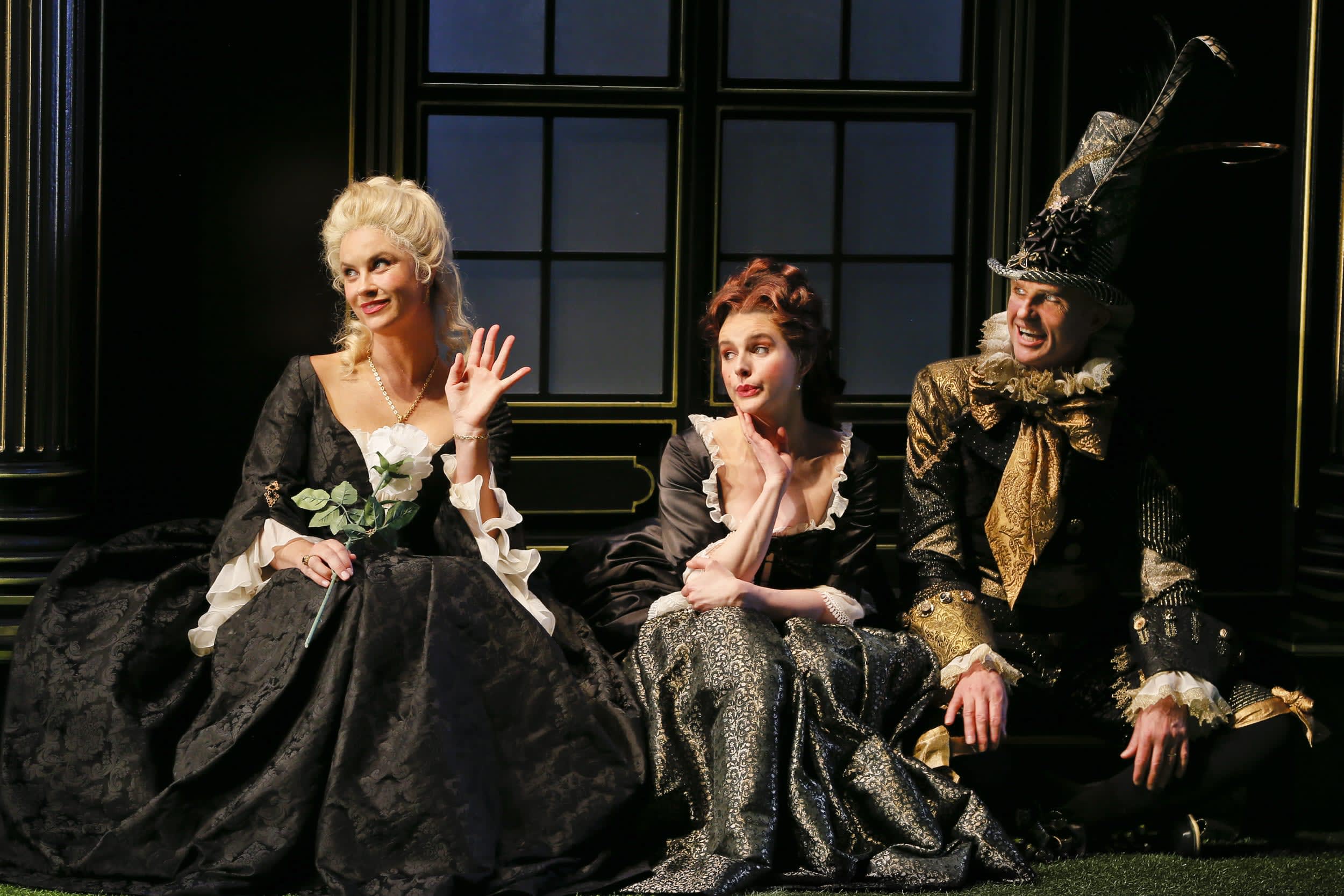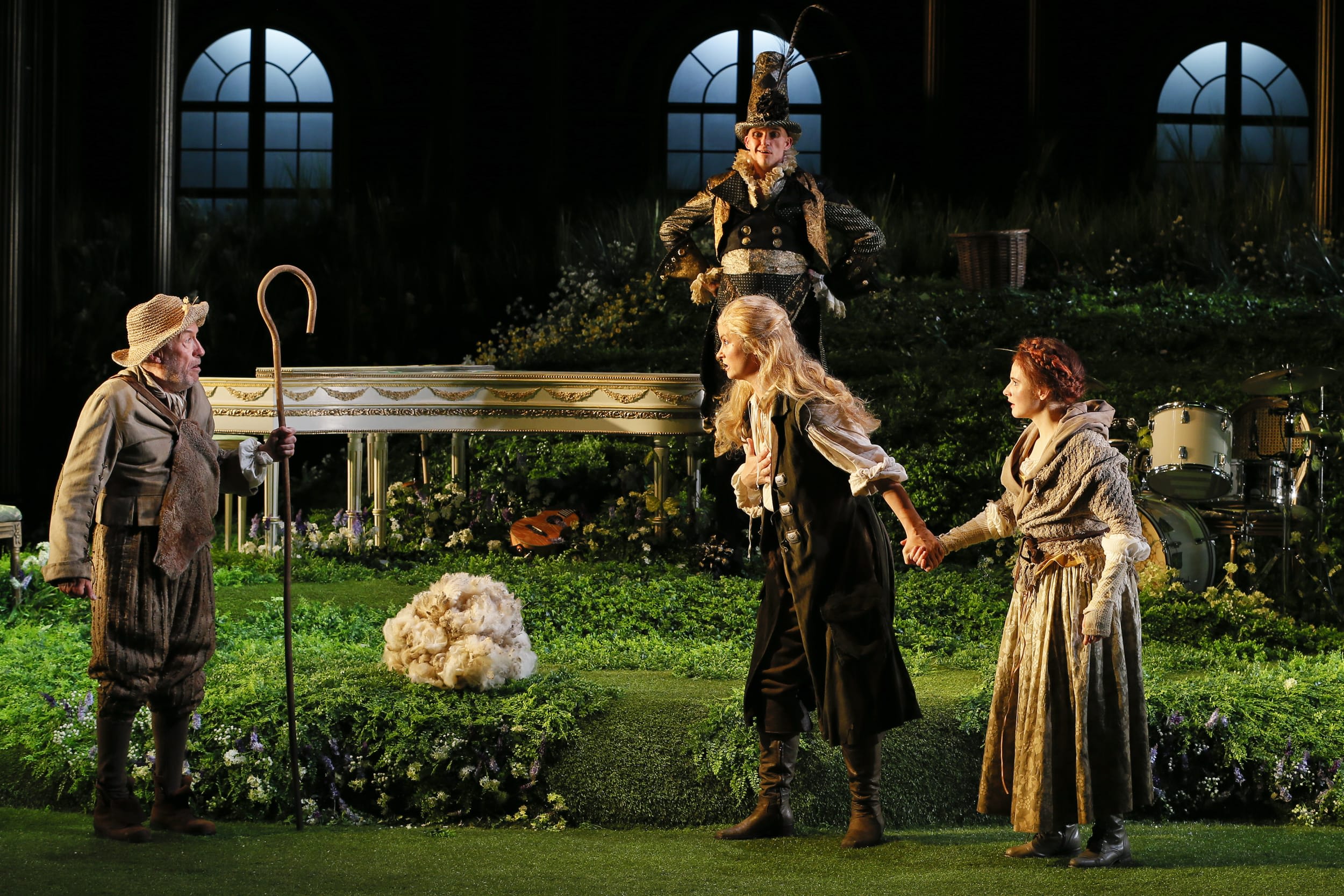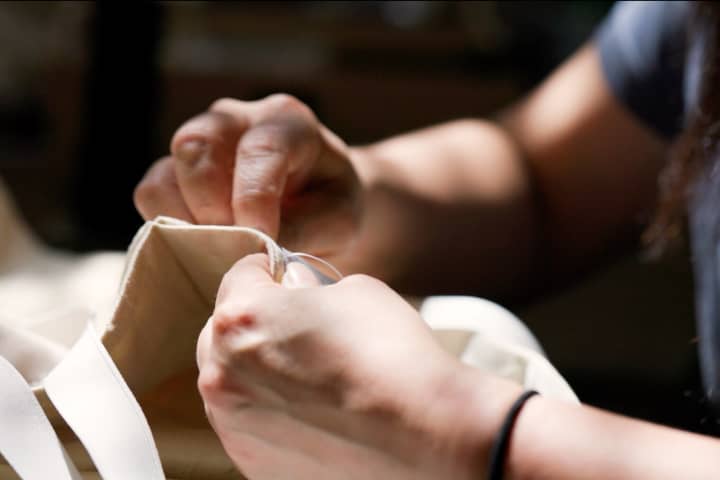During rehearsals for As You Like It, director Simon Phillips shared his insights into what makes Shakespeare's classic comedy sparkle on stage.
What is unique about Shakespearean comedy?
I think the really interesting thing about Shakespeare’s comedies it that all the characters are comedic. In his tragedies and histories, the comedy characters are almost without exception working class characters. In those plays, the gentry are running the joint, and the comedy was basically put in to make sure the whole audience felt included in the event. They’ve all essentially come from a working class area and they’re designed to pull the rug out from under the social structures of the main study of the play. But when Shakespeare starts writing comedy, the comedy stretches across all class ranges and it’s incredibly rich. Of course, just as in the tragedies there is comedy, there is always tragedy mixed into the comedy. So that makes the laughs bigger because they’re juxtaposed with moments of sadness or misfortune. Very often the comedies begin from a tragic beginning: the shipwreck in Twelfth Night; characters are banished in As You Like It. The springboard is dramatic but the results are comedic. And in his later comedies especially you get both the high comedy, which the romantic leads indulge in, and the low comedy that the drunks or clowns or yokels exhibit. That gives the plays an incredible variety of tones, and I always think the trick is to make sure the classy people are funny too, if you can. When we did Twelfth Night in 2018, I was very conscious that it shouldn’t just be the Toby Belch scenes that were funny. There should as much comedy in the whole play as possible.
How do you know when something in the script is supposed to be funny on stage?
It’s so weird directing comedy, because in whatever the play is, there’s always a few things in it that I never realise are as funny as they are until the audience see it. I’m constantly astonished. I’ve been working in the business for quite a long time now and comedy is one thing I’m considered to do quite well – and I still miss them! It’s really elusive, what the audience will find funny, or not, in spite of your expectations, but I think that you have to mine the truth of the situation for all the comic juice it’ll yield, not pursue comedy for the sake of it. In As You Like It there is a great moment in the first scene where Rosalind and Orlando first meet, where he is tongue tied and can’t say anything, but the script gives you nothing except the result. When she stops talking, he says ‘What passion hangs these weights upon my tongue?’ So you know as you’re putting that scene together, you have to amplify that situation as much as possible. You’re turning the dial up or down or around on the situations the script seems to be suggesting to you. The script is always your first point of call. One of the things I’ve found slightly saddening recently is that an audience is less inclined to really engage with the pure wit of the writing itself. It’s the physical gags that get the big response from the audience. They’re so immediately accessible to every member of the audience that you get a big spring off physical comedy. But there is incredible richness in the textual comedy that is going on in Shakespeare’s plays.
 Christie Whelan Browne, Georgia Flood and Daniel Frederiksen. Photo: Jeff Busby
Christie Whelan Browne, Georgia Flood and Daniel Frederiksen. Photo: Jeff Busby
As a director, how do you enhance the wit and the wordplay in the text?
I’m always really conscious when working on Shakespeare that the text is not easy for everyone to grasp. Sometimes I forget that it’s in my blood a bit, I get it very readily, but of course it’s just not the way people speak. So when you’ve got text that is complex, as in As You Like It, your first duty is to clarify the meaning. Little gestures, or sometimes a look, can help. A phrase might just need an actor to give one gesture that guides our comprehension towards what the text means. Especially colloquial phrases of the day, which were easily understood then, but are just not so easy to negotiate now. Colour in the actors’ voices is also very important as far as bringing that stuff to life. Daniel Frederiksen, who plays the character of Touchstone, has incredible vocal flexibility. When he’s got those big speeches with Corin at the start of the second half, where he’s talking about life in the court verses life in the country, he’s helping us enormously with the colour of his vocal tone.
What does Shakespeare do with Elizabethan stock characters?
I think one of the things for which Shakespeare is often lauded is that he will take recognisable types from the zeitgeist and present them so that initially we feel we’re meeting that archetype, but then he’ll explode our expectations. He nearly always adds a great touch of humanity or interest to those people. In a play like As You Like It, you’ve got the character of Jaques, who’s a stock, satirisable Elizabethan character – the melancholic. But within moments of coming into the play, this supposedly constantly morose character is roaring with laughter. He immediately goes against type and counters the audience’s expectation of what he’s designed to deliver, and you get an incredibly rich and varied personality as a result. I also find it interesting that Shakespeare wrote for specific actors when he was writing his fools. Initially Will Kemp played all the fools, but then an actor called Robert Armin took over, and the tone of their comedy changed. There is a lot of discussion actually about which of those two actors played Touchstone, because he is somehow halfway between the two styles. Kemp’s fools were far more obviously ribald, more knockabout clowns. Then Shakespeare starting playing with fools that were actually wiser than many of the other characters. Touchstone has lines to that effect in As You Like It – ‘The more pity, that fools may not speak wisely what wise men do foolishly.’
A lot of the comedy in As You Like It comes from mistaken identity. As a director, how do you make sure the audience knows who’s who, at the right time?
So many of Shakespeare’s comedies are dependent on mistaken identity, twins, where one is confused with the other. It’s one thing to make the audience understand who’s who, but I’m actually more often obsessed with making them sufficiently similar for the audience not to think all the other characters on stage are idiots! Then there’s gender identity, as in As You Like It. There is of course a certain convention going on. In Shakespeare’s day all the parts were played by men, so the scenario where Rosalind dresses up as a boy was an obvious decision to make in Elizabethan theatre – the ‘boy’ thing was utterly convincing! I think As You Like It can be set in any period or even a contemporary world, but one of the reasons I’ve set it right in the heart of Louis XIV’s France is that the difference between being in female dress versus male dress makes that identity confusion a much easier thing to accept. The audience can accept that Rosalind is taken to be a man because for starters, no women wore trousers. So you’re halfway there, in terms of how the other actors should be responding to the characters.
 Richard Piper, Daniel Frederiksen, Christie Whelan Browne and Georgia Flood. Photo: Jeff Busby
Richard Piper, Daniel Frederiksen, Christie Whelan Browne and Georgia Flood. Photo: Jeff Busby
What was the vision you gave to designer Alicia Clements to respond to?
When I was thinking about how to stage this play and what to do, I had one principal idea at work: I wanted the constraints of the court to be as contrasting as possible with the expansive freedom of the countryside. That makes the play particularly apposite now as we’re coming out of Covid; everyone’s felt that kind of claustrophobia of being trapped in constrained, urban situations. I wanted both the set and costume design to play into that idea as much as possible – I wanted the court to be as strongly a court as a court has ever been, dressed to the nines. I always had this feeling that the set design should start as small as it could, and then open up into something as big as the Sumner could offer, a breathtakingly large expanse, once we go to the country. That was kind of my key thing I really wanted to hold onto, the maximum contrast between those two worlds.
Published on 2 February 2022





